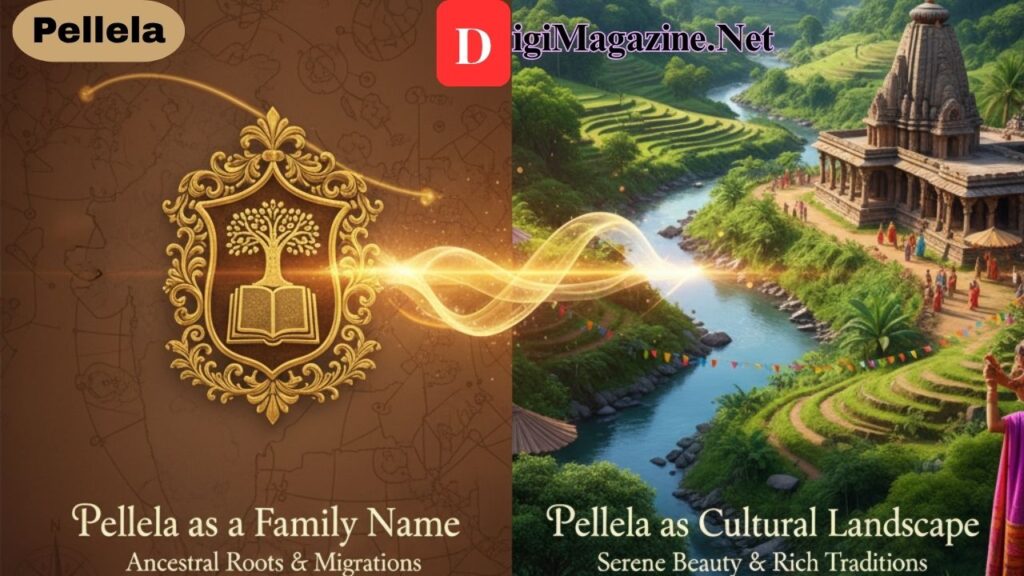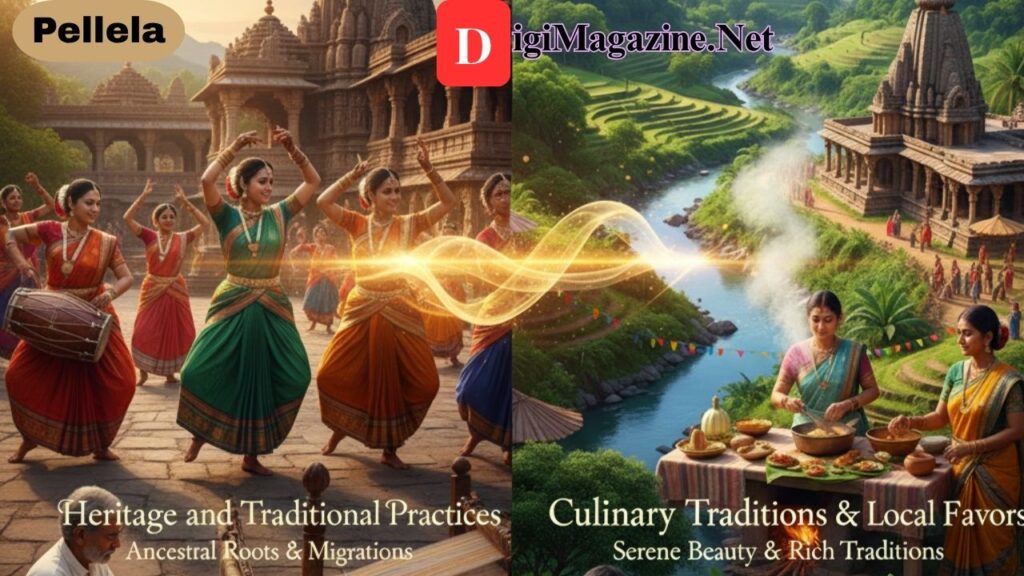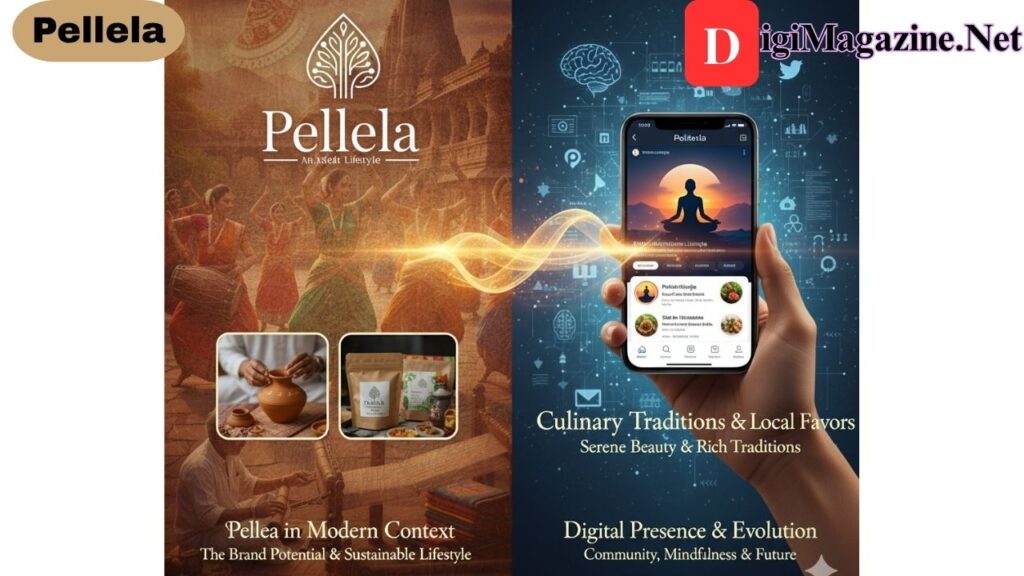When you first come across the word Pellela, it feels like one of those terms that immediately sparks curiosity. The sound of it rolls off the tongue smoothly, almost like a melody. Some people might assume it’s the name of a stylish brand. Others may think it refers to a faraway destination, while a few might even mistake it for a trend or lifestyle movement. The truth is, Pellela is more than just a word—it’s a reflection of how language, culture, and interpretation can shape the meaning of something simple into something extraordinary.
In this article, we’ll take a deep dive into Pellela, exploring its possible roots, cultural connections, and modern-day relevance. Even if you’ve never heard the word before, by the end of this exploration, you’ll likely feel a sense of familiarity with it, almost as if you’ve known Pellela all along.
The Origins and Multiple Faces of Pellela

The beauty of Pellela lies in its ambiguity. Unlike words with clear, dictionary-defined meanings, this term seems to exist in multiple spaces at once. For some, it represents a surname with deep genealogical roots. For others, it evokes images of a cultural destination rich in tradition and natural beauty. And for a growing number of people, it symbolizes something more abstract—a lifestyle, a mindset, or even a brand identity waiting to be fully realized.
Pellela as a Family Name
One of the most documented uses of Pellela is as a surname. Historical records show that families bearing this name have been traced primarily to regions in India, particularly in the states of Andhra Pradesh and Telangana. Census data from the early 20th century also reveals scattered occurrences of the name in places like New York, suggesting migration patterns that brought the name across continents.
The surname carries with it stories of heritage and lineage. Families who share this name often take pride in their ancestral connections, passing down traditions and values through generations. In many South Asian communities, surnames like Pellela serve as markers of identity, linking individuals to their geographical and cultural origins.
Pellela as a Cultural Landscape
Beyond its use as a family name, Pellela has also been associated with specific geographical locations. These places are often characterized by rolling hills, lush forests, and rivers that wind through valleys like natural pathways. The landscape of such regions tends to be both serene and vibrant, offering a glimpse into rural life that remains largely untouched by rapid urbanization.
In these areas, traditional festivals bring communities together in colorful celebrations. Artisans continue to practice crafts passed down through centuries, creating textiles and pottery that reflect the region’s artistic soul. The architecture often features ancient temples with intricate carvings, standing as silent witnesses to the passage of time.
The Cultural Significance of Pellela

Heritage and Traditional Practices
The cultural fabric associated with Pellela is woven with threads of tradition and community. Music and dance play central roles in preserving the stories of ancestors. Folk performances during festivals become living textbooks, teaching younger generations about their history in ways that written words cannot capture.
Local artisans demonstrate remarkable skill in their crafts. Whether weaving vibrant fabrics or shaping clay into functional art, these craftspeople maintain techniques that have survived for generations. Their work represents more than economic activity—it’s a form of cultural preservation, ensuring that traditional knowledge doesn’t fade into obscurity.
Culinary Traditions
The food culture connected to Pellela reflects the agricultural bounty of the land. Farm-to-table isn’t just a trendy concept here—it’s a way of life that has existed for centuries. Local ingredients form the foundation of dishes prepared using methods passed down through family lines.
Traditional cooking often involves slow preparation, allowing flavors to develop naturally. Spices are ground by hand, vegetables are sourced from nearby fields, and recipes are modified slightly by each generation while maintaining their essential character. The result is cuisine that tells the story of the land and its people.
Pellela in Modern Context

The Brand Potential
In contemporary settings, Pellela has begun to emerge as a concept with significant branding potential. The name carries an inherent sense of authenticity and uniqueness that appeals to modern consumers seeking connections to tradition while embracing contemporary lifestyles.
Businesses exploring sustainable practices and artisanal production find that a name like Pellela resonates with their values. It suggests quality, heritage, and mindful creation—attributes that align with the growing consumer preference for products with stories rather than just price tags.
A Symbol of Lifestyle and Mindfulness
Beyond commercial applications, Pellela has the potential to represent a broader lifestyle philosophy. In an era where people increasingly seek balance between modern convenience and traditional wisdom, the concept embodies this intersection beautifully.
The idea of Pellela as a lifestyle movement centers on several principles: respect for heritage, appreciation for craftsmanship, sustainable living practices, and community connection. These aren’t revolutionary concepts, but rather a return to values that existed before rapid industrialization changed how societies function.
Digital Presence and Evolution
In online spaces, Pellela appears in various contexts. Social media users have adopted it as part of usernames, perhaps drawn to its melodic quality or its uniqueness in digital environments where standing out matters. This modern usage demonstrates how traditional terms can evolve, finding new life in contexts their originators never imagined.
Travel and Discovery
Exploring Regions Associated with Pellela
For travelers seeking authentic cultural experiences, regions connected to Pellela offer compelling destinations. The natural beauty alone justifies the journey—waterfalls cascading down rocky cliffs, forests alive with bird songs, and agricultural landscapes that paint the countryside in varying shades of green.
But the real treasures lie in the cultural interactions. Visiting during festival times provides opportunities to witness traditions in full display. Colorful processions, traditional music performances, and communal celebrations offer immersive experiences that transform tourists into temporary community members.
Activities and Experiences
Nature enthusiasts find plenty to explore through hiking trails that wind through hills and valleys. Photography opportunities abound, from sunrise over misty landscapes to sunset silhouettes of ancient temple spires. Each season brings different perspectives, making multiple visits worthwhile.
Artisan workshops welcome curious visitors interested in learning traditional crafts. Whether trying your hand at pottery or observing the intricate process of textile creation, these experiences provide tangible connections to cultural heritage. The artisans themselves often prove to be excellent storytellers, sharing not just techniques but the meanings and histories behind their work.
Linguistic Dimensions
Regional Usage and Expressions
In South Asian dialects, terms that sound similar to Pellela sometimes appear in colloquial speech. These linguistic relatives might serve as affectionate nicknames or terms of endearment, demonstrating how sounds and meanings interweave across languages and communities.
Oral traditions in certain regions include folktales and songs where similar-sounding words play important roles. These stories, passed from generation to generation, form part of the collective memory that defines community identity.
Evolution of Meaning
Language constantly evolves, and words transform their meanings over time. What began as a proper name can gradually acquire additional layers of significance. Community usage shapes definitions more powerfully than any dictionary, and Pellela exemplifies this organic linguistic development.
The Emotional Resonance
There’s something intangibly appealing about Pellela that transcends its specific meanings or applications. Perhaps it’s the phonetic quality—the way the syllables flow together creates a sense of ease and comfort. Or maybe it’s the ambiguity itself that allows people to project their own meanings and associations onto the term.
For individuals with family connections to the name, it represents belonging and heritage. For travelers who’ve visited associated regions, it might evoke memories of experiences and discoveries. For creative professionals considering it for branding purposes, it suggests untapped potential and unique positioning.
This emotional dimension gives Pellela staying power. In a world saturated with information and competing messages, concepts that can forge emotional connections tend to endure while purely functional terms fade away.
Preservation Meets Progress
Balancing Tradition and Modernity
One of the fascinating aspects of exploring Pellela is observing how tradition and modernity coexist. Communities maintain their cultural practices while selectively adopting technologies and methods that improve the quality of life without compromising core values.
Young people in these regions often navigate between two worlds—honoring the traditions of their elders while pursuing education and careers in contemporary fields. This balancing act isn’t always easy, but it ensures that cultural knowledge transfers to new generations in forms that remain relevant.
Sustainable Development
The principles associated with traditional lifestyles connected to Pellela align remarkably well with contemporary sustainability goals. Practices developed over centuries—using local materials, minimizing waste, living in harmony with natural cycles—reflect wisdom that modern environmental movements are working to reclaim.
This convergence creates opportunities for regions and communities to showcase their traditional practices as models for sustainable living. Rather than being viewed as backward or outdated, these approaches gain recognition as forward-thinking solutions to contemporary challenges.
The Future of Pellela
Growing Recognition
As global interest in authentic cultural experiences and sustainable practices increases, concepts like Pellela stand to gain wider recognition. The term has the potential to evolve from a relatively obscure reference into a recognized symbol representing quality, heritage, and mindful living.
Social media and digital connectivity enable stories and concepts to spread rapidly across geographical boundaries. A term that might have remained localized in previous generations now has pathways to global awareness. Whether Pellela will follow this trajectory remains to be seen, but the ingredients for such expansion exist.
Opportunities for Cultural Exchange
Increased awareness of Pellela and what it represents creates opportunities for meaningful cultural exchange. Artisans can reach broader markets for their crafts. Travelers can discover destinations they might never have encountered otherwise. Communities can share their traditions with audiences who genuinely appreciate and respect them.
This exchange works best when it remains reciprocal and respectful. The goal isn’t to commercialize or dilute cultural practices but rather to create connections that benefit all parties—preserving traditions while providing economic opportunities, and offering authentic experiences while maintaining cultural integrity.
Conclusion
Pellela proves that sometimes the most interesting subjects are those that resist simple definition. Whether encountered as a surname with genealogical significance, a cultural destination rich in tradition, or a concept with lifestyle and branding potential, the term invites exploration and interpretation.
Throughout this journey into understanding Pellela, we’ve discovered connections between heritage and modernity, tradition and innovation, local specificity and universal appeal. The word serves as a reminder that meaning isn’t always fixed—it evolves through use, interpretation, and the stories we attach to terms.
For those who’ve carried this name through generations, Pellela represents family and continuity. For travelers seeking authentic experiences, it points toward destinations where culture remains vibrant and accessible. For creative thinkers considering brand identities, it offers a canvas of possibilities. And for all of us, it demonstrates how a simple word can open doors to understanding the rich complexity of human culture and expression.
Perhaps the next time you encounter Pellela—or any unfamiliar term that sparks curiosity—you’ll remember that behind every word lies a world waiting to be discovered. The question isn’t whether Pellela has meaning, but rather which of its many meanings resonates most deeply with you.
For more information, visit Digi Magazine.







